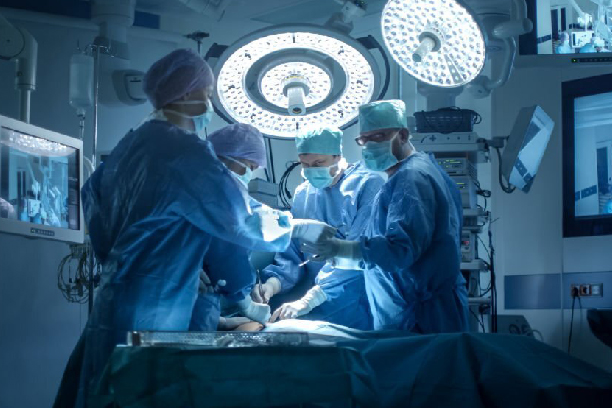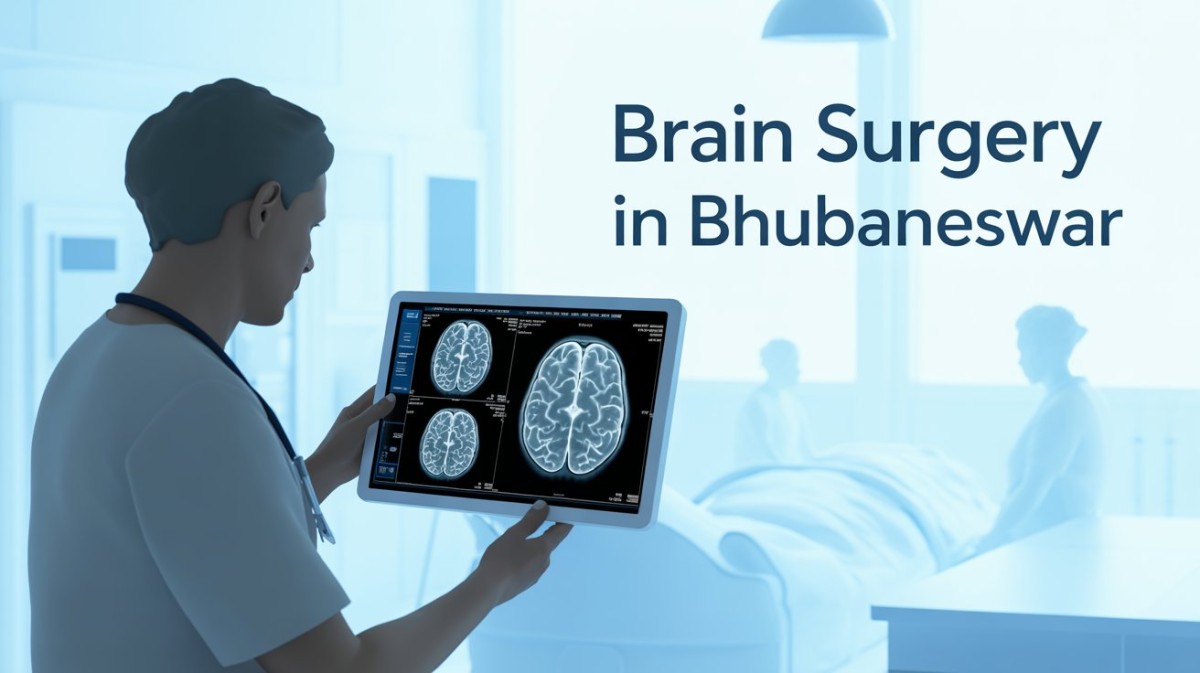1. What is Brain Surgery?
 Brain surgery, generally considered to be a part of neurosurgery, which are a range of operations carried out on the brain, skull, and related structures to treat conditions such as brain tumours, aneurysms, haemorrhages, epilepsy, hydrocephalus, trauma, and more.
Brain surgery, generally considered to be a part of neurosurgery, which are a range of operations carried out on the brain, skull, and related structures to treat conditions such as brain tumours, aneurysms, haemorrhages, epilepsy, hydrocephalus, trauma, and more.
Key types include:
Craniotomy: Opening a part of the skull to access the brain.
Minimally invasive neuroendoscopy / laser ablation: Smaller portals, less trauma.
Awake brain surgery (awake craniotomy): For tumours/epilepsy near critical brain areas, the patient is conscious for parts of it.
2. Why It’s Done
Brain tumour (benign or malignant) surgery can be performed for full removal or to reduce the size.
Brain aneurysm or vascular malformation; therefore, surgery may repair, clip, or bypass abnormal vessels.
Traumatic brain injury, haemorrhage, and increased intracranial pressure to relief of pressure and removal of blood clots.
Epilepsy, hydrocephalus, and nerve disorders occur when medical treatment alone is insufficient.
Surgery Preparation
Pre-Surgery
➤ Imaging procedures such as MRI, CT, functional MRI, and angiography are used to locate the lesion and plan the approach.
➤ Pre-operative evaluation: general health, co-morbidities (diabetes, hypertension), neurological baseline.
➤ Informed consent: discussion of risks, benefits, and alternative treatments (non-surgical).
During Surgery
➤ Depending on the approach, it could be a full open skull, key-hole, or even endoscopic.
➤ Use of intra-operative navigation, neuro-monitoring, and advanced tools improves precision.
➤ For awake surgery, the patient might be woken or kept semi-awake to monitor language/speech/motor functions.
Post-Surgery & Recovery
➤ Initial stay in Neuro-ICU or specialised neurosurgery floor. Monitoring for swelling, bleeding, and neurological changes.
➤ Start mobilising early (as allowed) and begin rehabilitation (physio, occupational, speech as needed).
➤ Follow-up imaging to assess resection, potential residual lesion, or complications.
4. How Is the Scenario in India or the Bhubaneswar Region?
 India has made significant developments in terms of neurosurgical care, but it still faces challenges in accessibility, infrastructure, and trained workforce, especially in smaller cities and rural areas.
India has made significant developments in terms of neurosurgical care, but it still faces challenges in accessibility, infrastructure, and trained workforce, especially in smaller cities and rural areas.
Success rates for brain tumour surgery and other neurosurgical procedures are improving, with Indian centres now reporting outcomes comparable to international benchmarks (70% to 90% success rates in selected cases).
In a city like Bhubaneswar, patients should check for neurosurgical centres equipped with modern imaging, a neuro-interventional team, and post-operative rehabilitation support.
5. Choosing the Centre & Surgeon
➤ Neurosurgery unit with a dedicated team of people, with a neurosurgeon, neuro-anesthesiologist, neuro-intensive care, and rehabilitation staff.
➤ Availability of technologies such as intra-operative imaging, neuro-navigation, and endoscopic/awake surgery capability.
➤ Experience in the specific condition your loved one has (e.g., skull-base tumour, aneurysm, epilepsy surgery).
➤ Good pre- and post-operative care: ICU, rehabilitation services (physio, speech, occupational).
➤ Transparent discussion of risks, outcomes, costs, and rehabilitation timeline.
➤ Hospital accreditation and protocols for neurosurgery safety.
6. Risks & Limitations
➤ Neurological defects such as weakness, speech problems, and vision issues can be experienced depending on the area of the brain.
➤ Bleeding, infection, seizure, swelling of the brain, and complications are reported in certain cases from anaesthesia.
➤ Some surgeries near sensitive areas can lead to partial removal or symptom relief rather than a complete cure.
➤ Also, long recovery or rehabilitation might be needed to restore function.
➤ Cost and affordability: Neurosurgery in India ranges widely; some procedures cost several lakhs of INR.
7. Cost in the Indian Context
 Indicative cost for neurosurgery in terms of brain tumour/craniotomy, etc, and others in India ranges approximately ~ ₹1,70,000 to ₹4,00,000+, depending on complexity, hospital, and region.
Indicative cost for neurosurgery in terms of brain tumour/craniotomy, etc, and others in India ranges approximately ~ ₹1,70,000 to ₹4,00,000+, depending on complexity, hospital, and region.
Potential for insurance coverage; patients/families should ask about what’s included (surgery, ICU stay, rehabilitation).
Recovery time: hospital stay might be a few days to a week or more; functional recovery varies widely.
8. Questions to Ask Before Surgery
➤ What technology will be used if it's navigation, awake surgery, or an endoscopy?
➤ What are the outcomes as functionality, return to work?
➤ What are the risks specific to my case?
➤ What rehabilitation is planned post-surgery?
➤ What is the cost estimate, and what does it cover?
➤ How many relevant cases has the surgeon/centre done in the past year?
If you are struggling with any associated issues, consult Dr. Seetam Kumar, the best Neuro and Vascular Intervention Specialist in Bhubaneswar.
9. Summary
Brain surgery is a major but increasingly safe and sophisticated option for treating complex neurological conditions. In Bhubaneswar, it’s critical to choose a centre with modern neurosurgical infrastructure, experienced surgeons, and robust post-operative care. Preparation, realistic expectations, and post-surgery rehabilitation are key components of successful outcomes.
